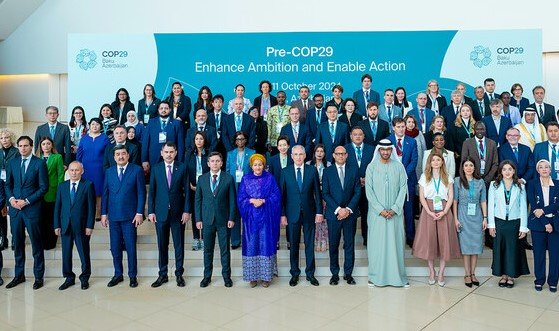France has officially recognized Palestinian statehood during a key United Nations summit in New York on September 22, 2025, joining several European nations in a bold move to revive the two-state solution for Israel and Palestine. This diplomatic shift, led by France and Saudi Arabia, comes amid ongoing conflict in Gaza and aims to pressure Israel and the United States, who strongly oppose the recognitions.
Global Leaders Back Palestinian State at UN Summit
World leaders gathered at the United Nations General Assembly to support Palestinian statehood, marking a significant moment nearly two years after the October 7, 2023, Hamas attacks that sparked the current Gaza war. France, along with countries like Belgium, Luxembourg, Malta, Monaco, and Andorra, announced formal recognition during the summit, defying resistance from Israel and its ally, the United States.
This push highlights growing international frustration with the stalled peace process. UN Secretary-General Antonio Guterres called Palestinian statehood “a right, not a reward,” urging an immediate ceasefire in Gaza, hostage releases, and unrestricted aid access. He warned that denying statehood fuels extremism and criticized Israeli settlement expansions in the West Bank as a threat to peace.

The summit, co-sponsored by France and Saudi Arabia, drew dozens of leaders but was boycotted by Israel and the US. Palestinian President Mahmoud Abbas appeared via video after being denied a US visa, adding to tensions.
Experts say these recognitions are symbolic yet build momentum for broader acceptance. Over 140 countries already recognize Palestine, but major Western powers had held back until now.
Key Reactions from World Powers
Israel condemned the moves as a “circus” and vowed responses, arguing they reward terrorism. Prime Minister Benjamin Netanyahu’s government sees unilateral recognitions as undermining direct negotiations.
The United States echoed this, calling the actions “reckless” and insisting statehood must come through talks, not declarations. However, some US allies, including France, broke ranks, signaling a rift in Western unity.
European nations like France emphasized the need to end the Gaza war and stop West Bank settlements. French President Emmanuel Macron described the recognition as a “historic step” toward peace.
On social media, reactions varied widely:
- Supporters praised it as a victory for justice and a chain reaction for more recognitions.
- Critics, including pro-Israel voices, called it naive and empowering extremists.
- Neutral observers noted potential for renewed diplomacy but doubted quick changes on the ground.
Saudi Arabia’s role adds a Middle Eastern dimension, as it pushes for normalized ties with Israel tied to Palestinian progress.
Impact on the Two-State Solution
The two-state solution envisions an independent Palestine alongside Israel, based on pre-1967 borders with land swaps. Recent events have tested this framework, with Gaza under blockade and violence surging.
Since the Gaza war began, over 41,000 Palestinians have died, according to health officials, and Israeli hostages remain captive. Settlement growth in the West Bank has accelerated, displacing communities and complicating borders.
| Aspect | Current Status | Potential Impact of Recognitions |
|---|---|---|
| Diplomatic Pressure | US and Israel isolated | Could force negotiations, but risks backlash |
| Humanitarian Aid | Gaza access restricted | May boost calls for unrestricted entry |
| Settlement Expansion | Over 700,000 settlers in West Bank | Recognitions highlight illegality under international law |
| Economic Aid | Palestine relies on donors | New state status could unlock funding and trade |
These recognitions might encourage more countries to follow, potentially shifting UN votes on Palestinian membership.
Logical reasoning suggests that without US buy-in, real progress remains elusive. Past efforts, like the Oslo Accords in the 1990s, failed due to mistrust, and current hardline stances on both sides deepen divides.
Broader Middle East Context
This development ties into wider regional dynamics, including recent clashes in Lebanon and Yemen. Iran’s support for groups like Hamas adds complexity, while Arab states seek stability.
In Europe, public protests have pressured governments. For instance, Italian strikes over Gaza turned violent, injuring police, showing global ripple effects.
Related events include Norway, Spain, and Ireland’s earlier 2024 recognitions, which inspired this wave. Analysts predict Britain and Canada might join soon, based on recent statements.
The UN summit underscores a shift: while symbolic, it challenges the status quo and could lead to concrete steps like enhanced Palestinian representation in international bodies.
Challenges Ahead for Peace Efforts
Implementing statehood faces hurdles. Israel controls key areas, and internal Palestinian divisions between Hamas in Gaza and the Palestinian Authority in the West Bank hinder unity.
Guterres highlighted settler violence as a “creeping threat of annexation,” with reports of increased attacks since 2023.
Possible next steps include:
- UN Security Council debates on Palestinian membership.
- Increased aid to rebuild Gaza, estimated to need billions.
- Diplomatic boycotts or sanctions if tensions escalate.
Experts warn that without addressing root causes like security and refugees, recognitions alone won’t bring peace.
As this story unfolds, share your thoughts in the comments below. What do you think about France’s move? Engage with us and spread the word to keep the conversation going.
